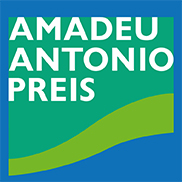"dreaming in German without subtitles" / 2017 / lecture
"If you want to find your homeland, better ask me. I'll lend you my eyes. And if I should ever return to the image of my old homeland in a distant future, maybe you'll come with me and look for me."
"dreaming in German without subtitles" embarks on the search for home in the new homeland. Old coordinates and references that are no longer useful or barely so are juxtaposed with newly appropriated perspectives.The fragmented narrative is a tribute to a life in Tehran in internal exile, which after fleeing also becomes an external exile.A narrative about the longings that are fulfilled solely by exile, and also those that must remain unfulfilled, perhaps because only in this way can the old homeland still assert its right to existence.
Ambivalences between Here and There, between the old and the new abode, are put into the relationship of guest and host."...That you catch me and think you can bind the country to my body, which I gave up. That you call me a migrant and don't even see your transfer, unnoticed."
The autobiographical framework of the narrative confronts the challenge of a new reality. What do I really need to arrive in Germany? When and how can and may I talk about Germany? And if so, how far can I, how far may I go?"I live in yours... in the blink of an eye in my country... filled with my world pain, my longing, my longing. And I found my home in the gaps of your modular language, it's not yet a home and I always have to set it up anew. Because other word modules create other worlds.Wel-come, in my German-land."
A story of escape from Tehran to Germany forms the outer frame of the narrative.
Nominated and winner of one of the second-place prizes at the Amadeu Antonio Award ceremony in 2017.
http://www.amadeu-antonio-preis.de

“träumen auf deutsch ohne untertitel” / 2017 / lecture
"Wenn Du Deine Heimat finden willst frage lieber mich. Ich leihe Dir meine Augen. Und wenn ich je in einer fernen Zukunft in das Abbild meiner alten Heimat zurückkehren sollte, kommst Du vielleicht mit mir und schaust für mich."
"träumen auf deutsch ohne untertitel" begibt sich auf die Suche nach der Heimat in der neuen Heimat. Alte Koordinaten und Referenzen, die nicht oder kaum noch taugen, werden neu angeeigneten Blickwinkeln gegenübergestellt.
Die fragmentierte Erzählung ist eine Hommage an ein Leben in Teheran im inneren Exil, das nach der Flucht auch zu einem äußeren Exil wird.
Eine Erzählung über die Sehnsüchte, die alleine durch das Exil erfüllt sind, und auch welche, die unerfüllt bleiben müssen, weil vielleicht nur so die alte Heimat noch ihre Existenzberechtigung behaupten kann.
Ambivalenzen zwischen Hier und Dort, zwischen der alten und der neuen Bleibe werden in das Verhältnis von Gast und Gastgeber gesetzt.
„…Dass Du mich auffängst und denkst, dass Du es kannst, mir das Land an den Leib zu binden, das ich aufgab. Dass Du mich einen Migranten nennst und selbst nicht siehst Deinen Transfer, unbemerkt.“
Der autobiografische Rahmen der Erzählung stellt sich der Herausforderung einer neuen Wirklichkeit. Was brauche ich wirklich um in Deutschland anzukommen? Wann und wie kann und darf ich über Deutschland reden? Und wenn ja, wie weit kann ich, wie weit darf ich gehen?
„Ich lebe in Deinem… im Augen-Blick in meinem Land…erfüllt von meinem Welt-Schmerz, meinem Fern-Weh, meiner Sehn-Sucht. Und ich habe meine Heimat in den Lücken deiner modularen Sprache gefunden, ein Zuhause ist sie noch nicht und einrichten muss ich sie immer aufs Neue. Denn andere Wortmodule schaffen andere Welten.
Will-kommen, in meinem Deutsch-Land.“
Eine Fluchtgeschichte von Teheran nach Deutschland bildet den äußeren Rahmen der Erzählung.
Nominierter und Gewinner einer der zweitplatzierten Preise bei der Verleihung des Amadeu Antonio Preises 2017
http://www.amadeu-antonio-preis.de
2024 Raman Zaya | impressum | Datenschutz